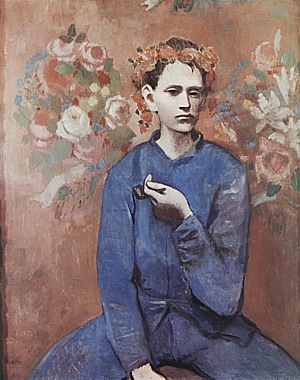So I just today had a brief meeting with one of my students, who just so happened to have missed probably 50% of class out of the last 2-3 weeks. She hasn't handed in a single assignment, and has no idea what is going on in my class. Meanwhile, I've just stood by as she occasionally comes and goes, quietly expresses that she has no idea, and I give her some smaller assignment to work on because in the thick of class it is really hard to focus on things like that adequately.
Finally I got to sit down with her today and realized that she has no idea what is going on - and then some. Even trying to explain about the beginnings of democracy, I quickly came to realize that she didn't know what government was, a citizen was - she couldn't even tell me anything about what democracy is. She said she'd never heard of it before. So I explained about each of them. Then I went to explain how Greece is significant because democracy developed there, and I realized she had no idea about what Greece was or when 600 BC was. So I explained about the timeline from BC to AD and how it works like a mathematical graph, with little success. When it seemed like she understood the way BC and AD worked, I started explaining the developments of Solon - the first leader of Greece in 600 BC. But I realized that she had no idea what social classes were, or what hereditary meant, or even what a council was. So I told her to read the first 4 pages (something she should have done 2 weeks ago) and take notes and write down any questions she has so that we can discuss them.
I think this is one of the more profound learning experiences I've had in teaching thus far, as I've seen on a more personal, one on one basis what it means to not expect background knowledge, and how to acquaint myself with the often nuanced hurdles that students will face as they are forced into entire portions of text that lay out historical developments. Do they understand when and where this is happening? Do they understand why they are reading it? Do they understand what they are supposed to be learning, or remember from the text? I think from now on, when I approach new material, I'm going to do it as if I were speaking directly to this student, and adjust my work to be certain that students understand the basics before I proceed to have them understand the deeper concepts.
One immediate thought I have is that I've been perpetually vexed with the need to distinguish my honors class from my regular class. The sheer weight and demand for thought and planning to prepare for one class has been up until this point almost unbearable that I've just been unable to prepare for both classes. Furthermore, I haven't had a clue as to how I would make the two courses different - I didn't know how each class was different, or what they could handle. But I think now I'm starting to get it. I think I need to direct my regular class to smaller steps towards this one student's level to make sure that all the students understand the basic, general concepts. I also think that in a way, I've already been running my class on the whole like an honors class. I think that out of fear of not testing my students hard enough I've really cranked up the questions, pace, and depth of my expectations, and I can see that it has been just too much for my regular class. I can see now the need to carefully examine every paragraph for every concept that might need to be introduced and make sure that students in my regular classes receive more scaffolding than I've been providing up until this point.
Overall, I will probably refer to this day mentally for a long time in my lesson planning, as I try to reduce everything to its simplest parts before I really try to build up to and explain, let alone expect the students to understand let alone "synthesize" to speak in Bloom-ological terms. I would rather my students really understand a few simple important concepts, than marginally and confusedly attempt to put out some sort of higher level analysis on abstract concepts they don't, nor will they ever probably understand.

1 comment:
Very interesting, that conversation with the girl. Student teaching in art has made me realize it's difficult to see how a lesson needs to be taught when the student has NO foundation whatsoever in the subject. I'm in HS too, and after 8 years of art students should know some basics, but often they don't. And noone had ever heard of apartheid.
Post a Comment